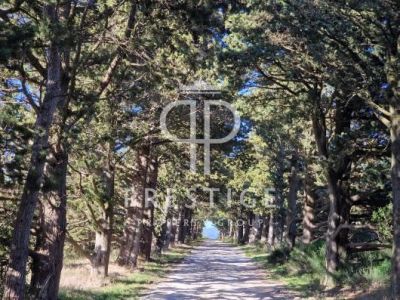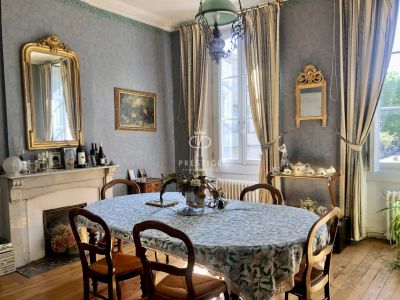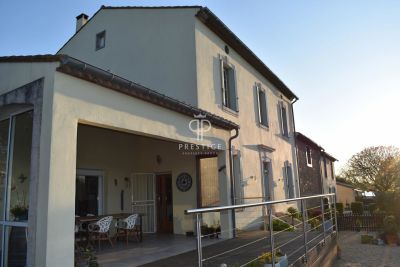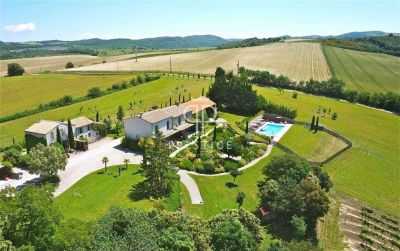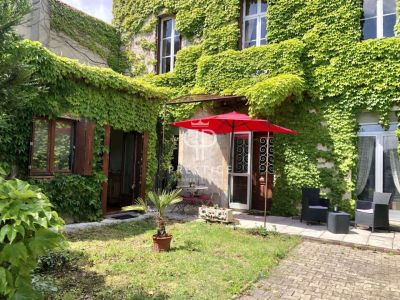Carcassonne Property
Area Guide
Take an historic walk around the double wall of the medieval citadel with its fabulous views of the surrounding countryside and tour the huge 12th century Château Comtal, marvelling at its enormous rose windows and weird gargoyles before heading to Carcassonne’s central square to enjoy a cup of coffee and watch the world go by; laze away a quiet sunny afternoon on your sun-soaked terrace with fabulous views of the city and then enjoy a leisurely dinner in one of the restaurants around Place Marcou in the Cité and soak up the centuries-old atmosphere as you enjoy a traditional Cassoulet with duck, pork and bean washed down with local wine; drive through the glorious rolling green countryside to the medieval village of Lastours and hike up to the four mythical-looking Cathar castles clinging to the top of the mountain where they have been for ten centuries through countless raids and sieges and enjoy the wonderful views over the valley. Located in southern France’s Languedoc area on the banks of the river Aude, the medieval hilltop city of Carcassonne is famous for its medieval citadel – ‘La Cité’, which is now a UNESCO World Heritage Site. With an airport just 3km outside of the city and one at nearby Toulouse plus excellent high speed train links to the rest of France, Carcassonne property offers investors an excellent opportunity to own or rent property in this beautiful and richly historic region of France.
Carcassonne dates back to the times of the Romans and Visigoths but it really started to flourish under the auspices of the wealthy Trencavel family in the late 12th century who built the Château Comtal and the Basilica of St. Nazaire and St. Celse. The city submitted to the rule of the kingdom of France in 1247 and became a border fortress between France and the Crown of Aragon. It was King Louis IX who founded the new part of the town across the river but in 1355 during the Hundred Years' War, after his failure to capture the citadel Edward the Black Prince ordered his troops to burn the lower town to the ground. Carcassonne’s key role in cross border trade with Spain dried up with the signing of the Treaty of the Pyrenees in 1659, when Roussillon was restored to France. As trade dwindled, the city walls were no longer needed for protection and fell into disrepair. It was only in the 1800s that the situation improved when the architect Viollet-le-Duc began a programme of restoration which helped save Carcassonne and ensure that the city of today is so outstandingly beautiful.
Carcassonne is becoming increasingly popular with the international community – many of whom have holiday homes and international investors are also being drawn by its popularity as a tourist destination so Carcassonne property prices remain competitive.
There is a good choice of Carcassonne property on the market ranging from traditional stone houses, renovated farmhouses and renovated or newly built apartments. Two bedroom renovated apartments with balcony offering city views start at around 135,000 EUR going up to 220,000 EUR for three bedrooms. Traditional stone town houses can also be found for between 230,000 EUR and 300,000 EUR and if you are keen on renovation then expect to pay around 350,000 EUR for a five bedroom detached house with traditional features such as wooden floors and original fireplaces but needing some love and attention. If you are looking for something with land then you will need to go outside of the city. In the surrounding countryside and villages, for example, a four bedroom renovated mill with swimming pool and gardens would be around 480,000 EUR or how about a five bedroom beautifully renovated traditional stone house set in landscaped gardens with lovely views for around 950,000 EUR.
Whether you decide to buy an elegant apartment with city views, a restored town house in the middle of the historic centre or a traditional farm house with acres of land in the surrounding countryside, Carcassonne property provides investors with the perfect opportunity to buy property in an area rich in history and culture. The combination of a good wine, fabulous food and wonderful countryside makes Carcassonne a perfect holiday and property investment destination.
Buying a Property in France
1. Signing the Agreement (Compris)
On finding a property you wish to purchase you will need to negotiate the terms, price and conditions of the sale with the owner.
The next step, once you are in agreement, is to sign the preliminary contract (Compromis de Vente). This is a legal document and after ten days will be binding on both parties. Rules change frequently in France and it is best to consult with your notary about when this period starts. Generally the compris will be signed in France with the Agent.
Variants can be included in the compris, for example an Acte (clause) can be added if the name or names to go on the title deed have not been finalised. If a mortgage will be required to purchase the property, the details for this, including the name of the mortgage company, must be on the compris.
2. Paying the Deposit
Generally the deposit will be 10% of the agreed purchase price. This will normally be paid to the notaire. There are exceptions to this, if the agent holds a carte professionelle, is bonded and fully registered then you may pay them, but do not hand over the deposit to anyone else. If for some reason the purchase does not go through, for example, if you write to the notaire and the agent that you do not wish to go continue with the purchase before the contract is binding (within seven days of signing the compris), then your deposit would be repaid. This would also apply if a condition had not been met, or the mayor or S.A.F.E.R. (a government agency that has the right of first purchase on most rural property that comes onto the market in France) could oblige the purchaser to give way. If you decide after the seven days 'cooling off' period that you do not wish to complete the purchase and pull out of the sale you would lose your deposit. If however the vendor pulls out of the sale then you will receive your deposit back plus the same amount from the vendor.
3. On Completion
Generally it will take around two or three months to complete the purchase.
During this time the balance of the purchase money must be paid into the account of the notaire, this must be done well ahead of the completion date. The notaire will prepare the documents, check that the deed of sale (Acte de Vente) is in order and have the legal title ready to be signed over. It is possible to have someone sign on your behalf if you give them power of attorney. An interpreter may be of use at this point if your French is not very good and many Notaires will suggest (or insist) that an interpreter is with you.
